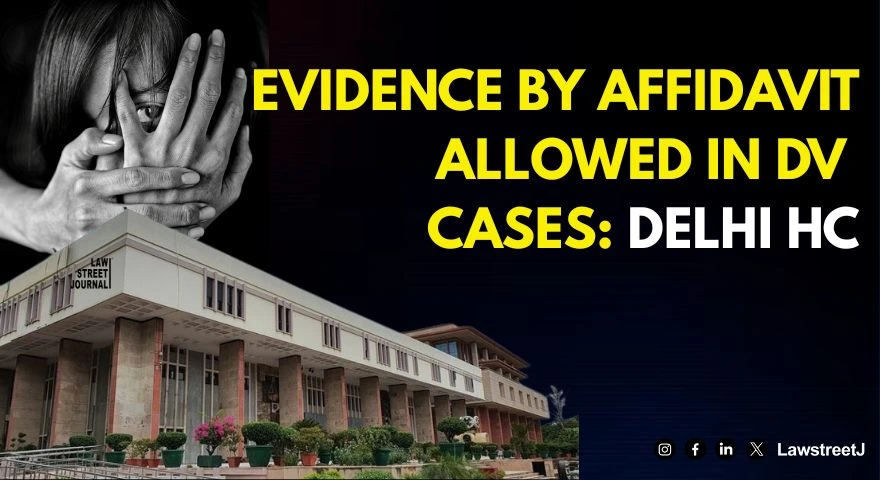New Delhi: The Delhi High Court has dismissed a petition challenging the permission to record witness testimony by way of affidavit in proceedings under the Protection of Women from Domestic Violence Act, ruling that such cases are essentially civil in nature despite following criminal procedure.
Justice Neena Bansal Krishna made significant observations on the procedural flexibility allowed under the Protection of Women from Domestic Violence Act, 2005, to ensure expeditious justice.
The court addressed a petition filed by Sachin Gaur under Section 482 of the Code of Criminal Procedure against an order of the Metropolitan Magistrate. The court noted:
“A petition under Section 482 of the Code of Criminal Procedure, 1973 has been filed against the order dated 25.02.2017, whereby the learned Metropolitan Magistrate (Mahila Court), Rohini, Delhi, allowed the application under Section 311 Cr.P.C. filed by Respondent No. 2, Ms. Neelam Gaur, and permitted the evidence affidavit of her father.”
Addressing the central legal question, the court observed:
“The moot question is whether, in proceedings under the DV Act, the examination-in-chief of a witness can be tendered by way of affidavit.”
Highlighting the nature of proceedings under the DV Act, the court stated:
“From the Statement of Objects and Reasons of the Act, it is abundantly clear and needs no further elaboration that the remedies provided under the DV Act are civil and not criminal remedies.”
In its ruling, the court concluded:
“It may thus be concluded that the reliefs granted under the DV Act are essentially civil, protective, and remedial, and the procedure for adjudication of such petitions can be defined by the DV Court under Section 28 of the DV Act, in order to effectuate and implement the State’s objects and reasons which prompted the enactment of this Act.”
The court emphasized the procedural flexibility provided by Section 28(2) of the DV Act, noting that:
“Nothing in sub-section (1) prevents the courts from laying down their own procedures for the disposal of an application under Section 12 or Section 23 of the Act.”
The petition was dismissed, with the court finding no infirmity in the Metropolitan Magistrate’s order allowing testimony by affidavit.
Mr. Anubhav Gupta, Mr. Manish Kaushik, Mr. Mishal Johari, Mr. Ajit Joher, and Mr. Yashpriya Sahran, Advocates, appeared for the petitioner, while Mr. Satinder Singh Bawa, Additional Public Prosecutor, represented the State. Mr. Madhav Khurana, Senior Advocate, with Mr. Teeksh, served as amicus curiae.
Case Title: Sachin Gaur vs. State of NCT of Delhi & Ors.



![Delhi High Court Sets Aside Arbitral Tribunal's Award Against NHAI in Highway Project Delay Case [Read Judgment]](/secure/uploads/2023/07/lj_9605_23374c2e-392c-4491-a2fe-f2f12fc5272f.jpg)
![Delhi Court Rejects Stay Request in Defamation Case Against Rajasthan CM Ashok Gehlot [Read Order]](/secure/uploads/2023/08/lj_5208_80de1ddc-d76a-4f7f-b180-408e3ae14fb4.jpg)





